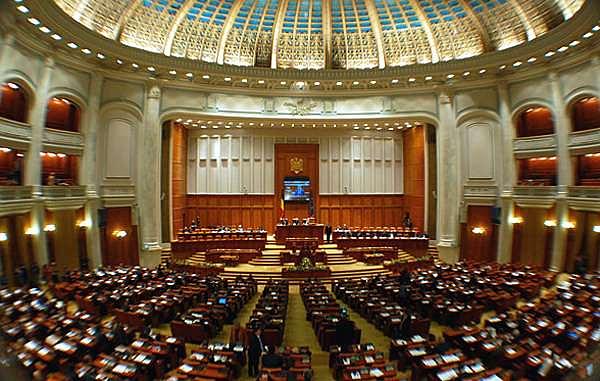Romania’s Parliament starts new session, Criminal Code changes on the agenda

The Romanian Parliament has begun a new session on Thursday, February 1, with important measures on the agenda. Among the most controversial measures of the parliamentary majority made up of the Social Democratic Party (PSD) and the Alliance of Liberals and Democrats (ALDE) is the proposal to change the Criminal Code.
Several PSD politicians talked in recent weeks about the changes to the Criminal Code. For example, Chamber of Deputies member Catalin Radulescu said that the members of the special committee in charge of the justice laws changes, which is headed by former justice minister Florin Iordache, would begin to amend the Criminal Codes and to decriminalize abuse of office. In his turn, PSD’s deputy secretary general Codrin Stefanescu said that the party would bring important changes to the Criminal Code, local News.ro reported.
Catalin Radulescu was the initiator of a controversial draft bill aimed at amending the Criminal Code and the Criminal Procedure Code. For example, the draft bill proposed a limit of EUR 200,000 under which abuse of office shouldn’t be treated as a crime, arguing that criminal sanctions should only intervene when the damages are “substantial”. It also proposed lower penalties for bribery and influence peddling.
The pension and wage laws will also be on the Parliament’s agenda this session.
Another important project is the Administrative Code, which was submitted to the Senate in December as a legislative initiative assumed by PSD senators and deputies. The draft Administrative Code has a number of controversial articles. For example, one of them says that only government members can decide on the necessity and opportunity of issuing governmental administrative acts. The Code also establishes that members of the Government may be part of the general shareholders assembly or the board of directors of autonomous administrations and public companies, including banks and financial institutions, according to News.ro.
The PSD leader Liviu Dragnea also said he would want changes to the national security laws to be initiated in the new Parliamentary session. These laws also target the Romanian Intelligence Service (SRI) and the Foreign Intelligence Service (SIE). Dragnea said secret services need "a modern legislation”.
The Parliament adopted three important justice laws at the end of last year, which caused protests in the country and concern among Romania’s foreign partners that they may affect justice independence. The three laws, which haven’t been promulgated by president Klaus Iohannis, have been challenged at the Constitutional Court by the National Liberal Party (PNL), the High Court of Cassation and Justice (ICCJ) and the Save Romania Union (USR).
The Constitutional Court already ruled on two of the three laws. Most recently, it said that the law that brings changes to the status of judges and prosecutors includes several unconstitutional provisions, including some related to the magistrates’ responsibility.
Irina Marica, irina.marica@romania-insider.com















